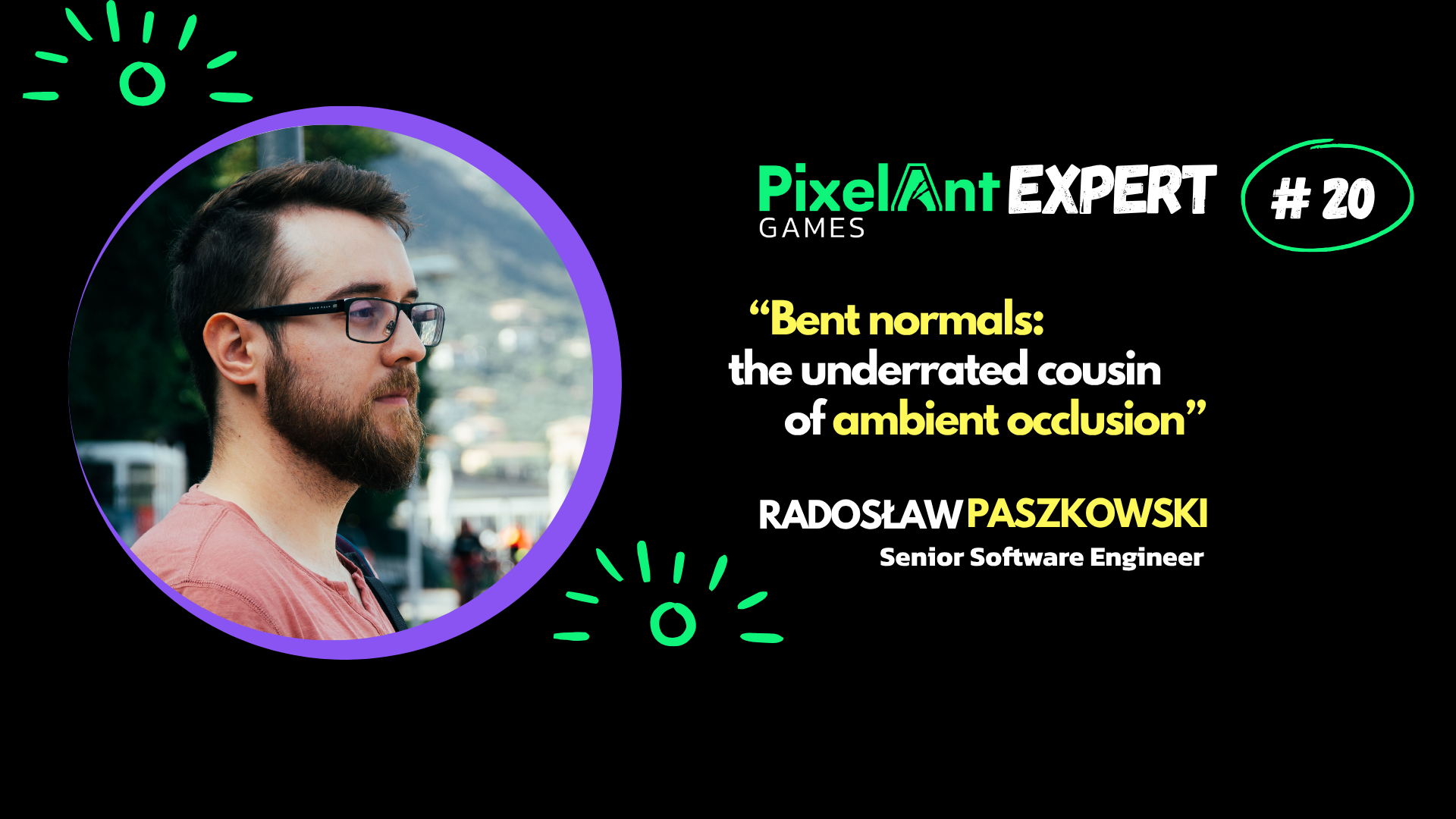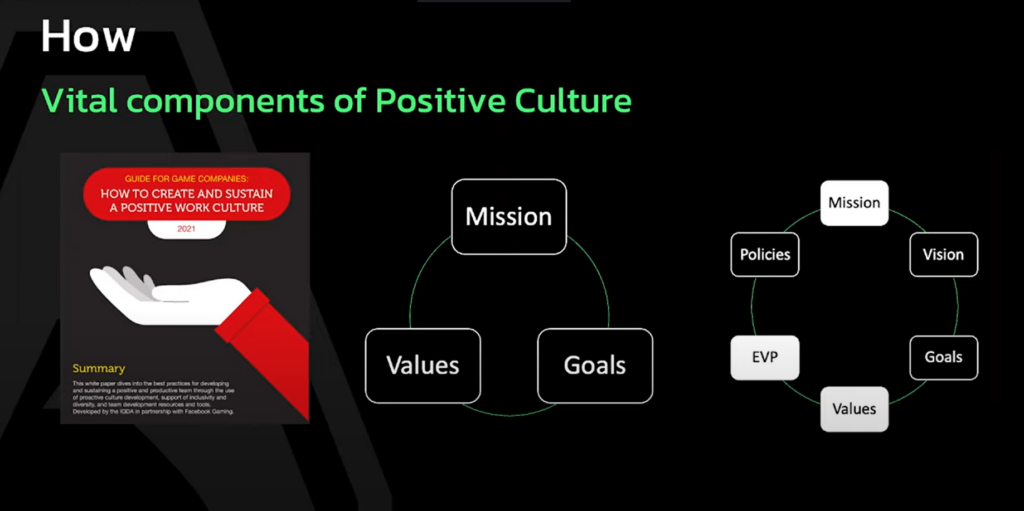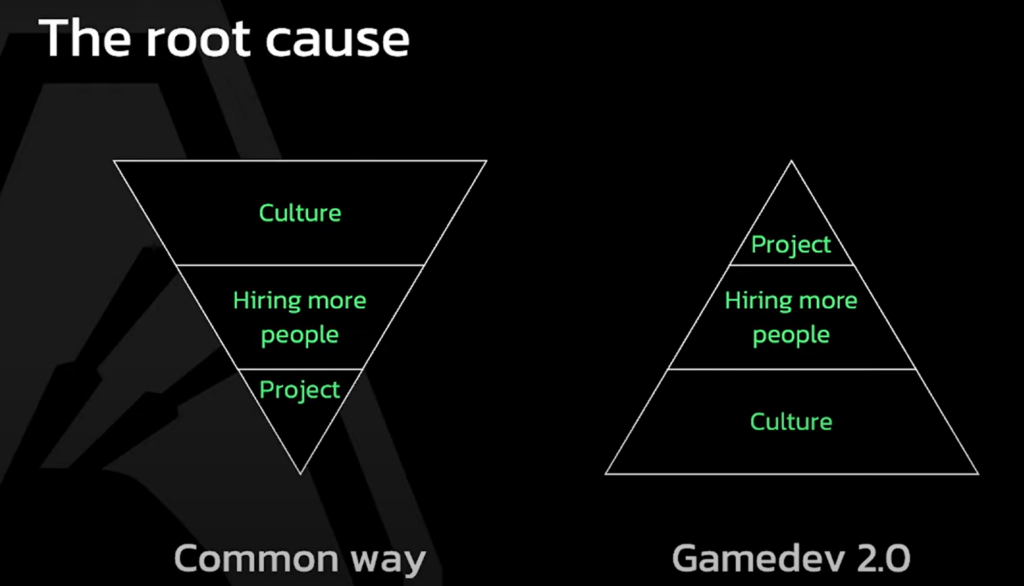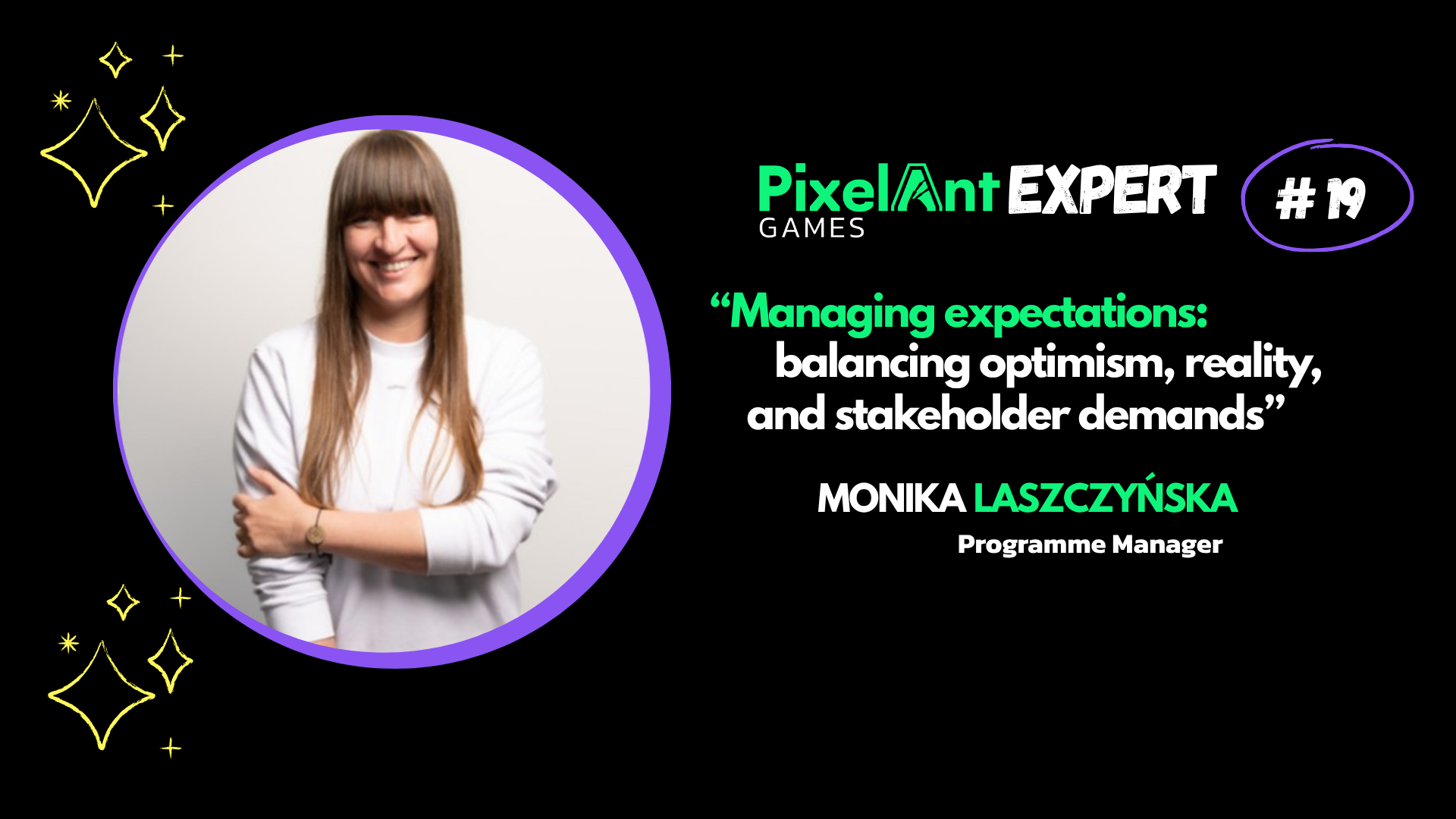
GameDev 2.0: Bringing the fun back into game development

I will share my personal experience from crafting studio culture while learning from being a part of the Sumo Group, as co-founder of PixelAnt Games.
How to build a positive work culture within a game development studio
We here at PixelAnt Games aim to bring the fun back into game development by creating a positive work culture. Building it is no piece of cake, I will share some details about how we as a studio approached the issue and what our experiences were. However, it’s not a ready-to-use, off-the-shelf solution that can simply be plugged into any organization – as creating a positive culture requires a lot of hard work for which there is no simple fix or hack.
The root cause of a bad work culture
The International Game Developers Association published an article recently on how a positive work culture can influence the teams and atmosphere within a studio. The main issue can be defined as ‘there are far too many studios that become successful and grow rapidly without investing in a positive work culture’.
Therefore, we should try to think about the possible reasons for a bad studio culture – why does a studio that grows too fast not invest more in a positive work culture, and what are the effects of that?
Through looking at different studios and how they’re run, we came up with a template for creating a game development studio. It all starts with a project at the bottom of the pyramid, where a group of people say: “Okay, we have an idea for a game, now let’s make it.”
Once they have talked about the game and figured out what needs to be done, they produce a backlog with all the various features and tasks required. To fulfil those tasks, they need to hire more people.
Basically, game development studios tend to hire people for individual projects, and then as the studio grows, the culture inside it develops. Whether it’s desired or not, a work culture starts ‘emerging’ in the studio because more and more people come in with different points of views and different values.
But as we can see, this kind of structure built on a project isn’t stable at all. Imagine that a project has certain issues or challenges – for example, there may be a problem with the budget or investment, or a new console is released by the tech companies which means the project needs to change scope. Everything in the company is dependent on the project, and that’s very unstable.

What can you do instead? We would suggest not hiring for individual projects, but instead reversing the pyramid and starting with the work culture. Focusing on the culture first – we need to define the strategy and our values initially, and then hire people that fit that culture, not for the project itself.
The project is a subsequent element that will appear once the culture and team have been built. In this situation, everything is much more stable, even if individual projects prove problematic. Hiring people for the culture means that you are project-agnostic, which is part of the philosophy we call ‘GameDev 2.0’.
Why is the work culture so important, and why should it be created first?
Looking at different resources, it became apparent that a positive work culture is more productive because it enables people to grow, and it also increases motivation and sustainability. At the end of the day, it’s good both for an individual project and the business.
“The employees of a company with a good culture will feel inspired and supported, and they will grow into better versions of themselves and carry their projects along with them.”
How can we create a positive work culture?
When we looked at the components of a work culture that we can focus on, again we found a very useful study prepared by the International Game Developers Association on creating and sustaining a positive work culture. It provides a very good starting point and gives valuable hints on how to go about building a positive studio culture. The study goes on to say that there are three main components of a work culture, namely: mission, goals and values.
However, we would even add a few more components of our own that are necessary for creating a good culture. So, in addition to those three points above, we would also include policies, Employee Value Proposition and vision.

How did we go about the task of building these different components at PixelAnt Games? Firstly, let’s take a look at EVP (Employee Value Proposition).
Our EVP shows the ways in which we’re different from other companies, how we want to grow, and what we offer that nobody else does. We used a tool called a Value Proposition Canvas (one of the design thinking methods) to create a persona – and after establishing our persona’s pains and gains, we were then able to come up with our EVP by figuring out what we can do differently to other studios, that would ease those pains.
Subsequently, we worked out a list of bullet points showing how we want to deliver value for our employees:
- Working on the most recognizable, top-tier AA/AAA game brands (Forza Horizon, Control, Hitman, Call of Duty, Sackboy, etc.)
- Collaborating with the biggest partners in the gaming industry (such as Microsoft, Sony, Nvidia, AMD, Intel, WB),
- Constant learning and personal growth through a variety of projects (different genres, platforms, and technologies), plus access to gaming industry experts & veterans (with 30+ years of experience),
- Creating our own IP based on Unreal Engine, with full ownership of the creative, production and technology aspects,
- Hitting the perfect sweet spot between a stable organization and lean start-up; we are stable from a financial and expertise standpoint (as part of Sumo Group), but also able to drive the business forward in the way we want,
- A healthy, crunch-free environment: our values are at our core, and we take them very seriously – they are Trust, Respect, Personal Growth, Fairness, and Integrity.
Our values and mission
We regard building values as a guidance and a ‘north star’ for how we should operate. Firstly, we created a bottom-up approach, which entailed noting the behaviours that we wanted to see in our company daily. A good work-life balance is very important for us, so we said that we should take days off, avoid crunch, and value our time – but we should also be committed and deliver.
Since these behaviours are the rules that we expect people to follow, we grouped them into four values.
One of these values is to keep growing, both in terms of yourself and your skills. We’re constantly learning from each other and our trusted partners – which is why we decided to join Sumo Group – but we also decided to create a multi-project environment so that we can learn from different projects.
On top of that, we provide an extra five learning days during the year which employees can use for their own professional development with access to GDC Vault and Udemy.
Another important component of a positive work culture is the ‘mission’. Once we have our values and EVP, we should formulate our mission – which is a statement showing where the organization is going. Our mission is:
‘To deliver amazing player experiences through AA/AAA games co-development and own IP creation by fostering a healthy, stable and learning-driven collaborative ecosystem’.
Probably 99% of game development studios could also have that first part of the mission statement as we all want to deliver amazing player experiences. The main issue, though, is how to do it.
We aim to do it through AA/AAA games co-development, developing them jointly with other partners and then trying to use that experience to cherry-pick the best tools and practices for our own IP creation process. The last part of our mission is also crucial – we foster a healthy, stable and learning-driven collaborative ecosystem.
It’s not only about learning from projects, but also building the infrastructure, objective systems, bonuses, and self-development path for our employees.
During job interviews, we tell the candidates all about our values to see whether they share them with us. It’s incredibly important for us that we hire for our specific work culture.
Trusted partners that we can learn from
Before our Sumo journey began, we were thinking about joining a trusted and experienced partner – and that’s why we chose Sumo Digital and the wider Sumo Group. Even though our studio is composed of industry veterans – people with 15 to 20 years of experience – we are very humble, and we know that we can still learn a lot from developers more experienced than us.
Within Sumo, we had the opportunity to learn from people with 30, 35, or even 40 years of experience, which is an amazing opportunity for us to grow.
Sumo Group has already co-developed more than 100 games, which is a huge number of projects that we can learn from. Right now, we are involved in several different projects with the group, so we can learn from all these different projects and see a different perspective, benefiting from the different scope of projects that can involve teams ranging in size from 30 to 150 people.
We can also experience different technologies like Unreal Engine 4, Unreal Engine 5, or any other proprietary tech. We are able to learn and then leverage this experience for our own IP and our own development formula to create our new titles.
A word of advice
To summarise; we started with the culture, hired people for that culture, and then created a business model that supports the way we manage our projects.
How can you achieve that in your business?
- Our first piece of advice would be to focus on your own work culture. Start with the components of that culture at the beginning – by that, we mean the mission, vision, values, and EVP. The work culture is something very stable compared to individual projects, so remember to hire for your culture, not for a project.
- Create an Employee Value Proposition with a Value Proposition Canvas. When you have your EVP, you can talk to people directly about what you want to do, how you want to do it, and especially about why your company exists and what you can offer.
- Another very important component is that you need to ‘walk the talk’ – once you create your work culture, values, and EVP, they should be living. Values are not a document, or words on a wall or t-shirt – they need to be behaviours that you expect to see in your company daily. Company founders and top management are responsible for creating and executing that culture, so ‘walk the talk’ basically means being consistent and taking your values and whole work culture very seriously.
- Learn from those companies which have done it right. Learn from people who have created a positive studio culture; talk to them, cherry-pick the best ideas, and think about the pillars you would like to build your own positive work culture on.
We firmly believe that creating a positive studio culture brings huge benefits in terms of motivating your team. If people feel happy, if they are growing professionally and working on things that they really enjoy, then they are motivated.
A motivated team produces better results because they simply want to do the work and they’re happy doing so. Putting the fun back into game development is important to us because we want both our developers and us to have fun doing it.
There’s nothing more motivating than seeing your work produce great results – and higher motivation means even better games!
WATCH VIDEO:
